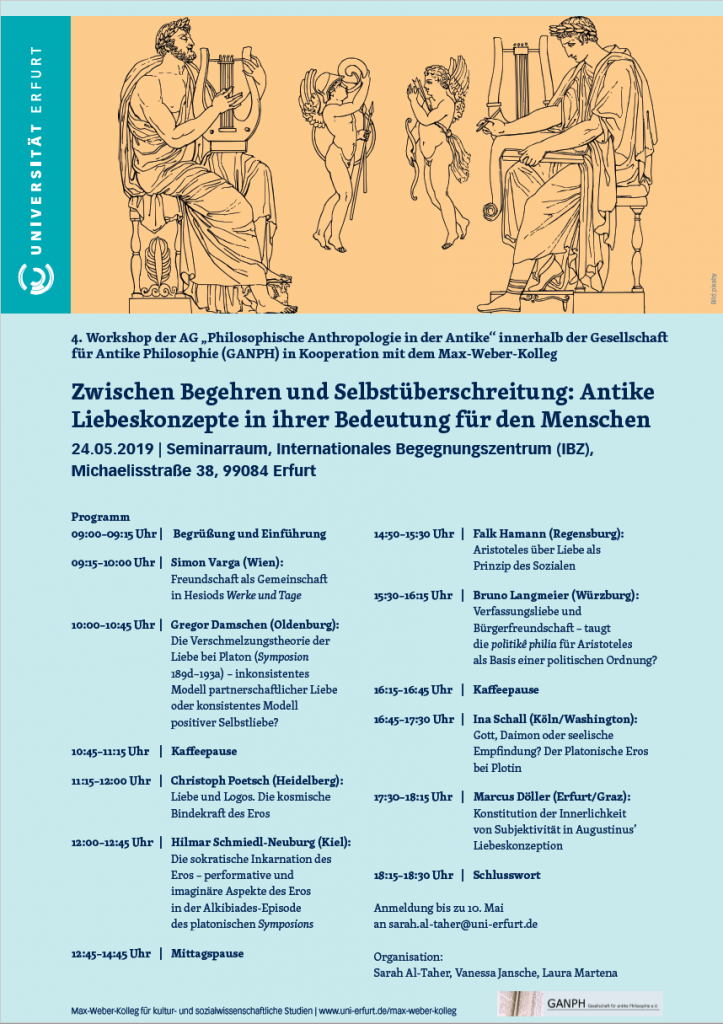Judging by the standards of 13th/14th century Scholastic exegesis, Meister Eckhart’s Bible commentaries appear quite unusual in more than one respect. Rather than giving a consistent, continuous interpretation of each Biblical book, Eckhart bases his analyses on a very limited number of chapters and sometimes even isolated verses, while apparently disregarding the rest of the text. The guiding hypothesis of my project is that this extremely lacunary commenting style is the result of a fundamental methodological option: Instead of interpreting the Biblical text itself, Eckhart focuses on those passages that contain the hermeneutic keys to the correct understanding of the whole text. While his two commentaries on Genesis deal with the fundamental principles of created reality as such, his commentary on Exodus raises the question of how divine Revelation can be articulated in human language and how, consequently, the different names and titles of God have to be interpreted. Drawing on Moses Maimonides, as well as on modistic language theory, Eckhart develops a speculative grammar that allows him to understand
God as pure being that constitutes the transcendental fundament and horizon of the semantic relationship between words, concepts, and reality. God, therefore, is not above all names and radically transcendent in relation to human language but, on the contrary, can be referred to by any name, albeit imperfectly. Thus, the Hebrew and Greek original of the Biblical text cannot claim greater “authenticity” over its various translations into other languages. For Eckhart, each and every human language is a place where the divine word (verbum) can become incarnate without ever exhausting its infinite semantic potential.
A workshop is taking place at the Max-Weber-Kolleg
On Max 24th 2019 a workshop an Love in antiquity is taking place:

Petra Gümplová gave a working paper on ‚Reinventing Sovereignty over Natural Resources: the case of the Yasuní ITT Initiative‘
This paper discusses the Yasuní ITT Initiative through which a sovereign state (Ecuador) proposed it would forgo oil extraction in an area overlapping with a global biodiversity reserve and indigenous territory in exchange for financial compensation from the global community. This paper argues that the ITT Initiative provides an excellent opportunity for a much needed discussion about limits on sovereign rights to natural resources. The article first looks into problematic features of sovereignty with respect to natural resources and argues that it fails to facilitate a use of natural resources compatible with demands of domestic and international justice. Three issues are identified: the extractivist bias, the problem of territorial monism, and the justice deficit. In the second part of the paper I show how the ITT Initiative innovatively attempted to transcend these structural weaknesses in the current system thus providing a valuable model of self-limiting sovereignty over natural resources. Three aspects are highlighted: a fiduciary model of resource sovereignty, the recognition of extraterritorial rights of others to sovereign resources, and a model of international cooperation for the non-exploitation of resources and the effective mitigation of climate change.
Nathan Alexander publishes new book
For more information on Nathan Alexanders newes publication „Race in a Godless World: Atheism, Race, and Civilization, 1850-1914“ please check the following link:
http://www.manchesteruniversitypress.co.uk/9781526142375/
We would also like to draw your attention to one of Nathan Alexanders articles: „An Atheist with a Tall Hat On: The Forgotten History of Agnosticism“: https://thehumanist.com/magazine/march-april-2019/philosophically-speaking/philosophically-speaking-an-atheist-with-a-tall-hat-on-the-forgotten-history-of-agnosticism

